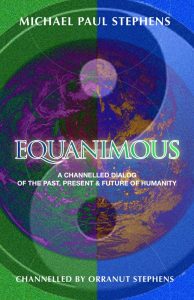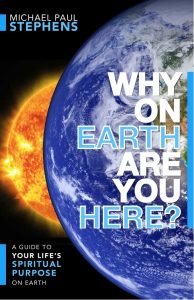
We-Topia
How Ego Broke the World And How We Can Fix It
August 2023
BUY HARDCOPY | Amazon (UK) | Barnes & Noble (US) | Booktopia (AUS/NZ)
BUY EBOOK | Google Play | Kobo
We-Topia is the true and shocking story of how ego conquered the world.
From happier, healthier, and more spiritually evolved nomadic ancestors to a selfish globalized world that exploits, divides, and petrifies today, We-Topia explores how a powerless society has always been part of the plan.
And it’s worked.
Across the millennia, society gradually devalued human consciousness while social systems such as slavery, money, and religion turned people into resources.
Now, like a James Bond villain, this purposeful manipulation mesmerizes us to be consumers and tells us that higher spiritual evolution is a delusion.
How did this happen? How do we change? What is life’s purpose and meaning?
We-Topia answers these questions with some good news – there’s a way out of this mess and there always has been.
As our ancestors knew, liberty from ego is possible when society values real human needs, and We-Topia provides the concepts for you to begin.
It is a spiritual odyssey from me to we – the ultimate inside-out rebellion against 13,000 years of conditioning.
Chapter Summary
Introduction
Chapter 1 – The Purest Natural Socialism
How does nature work? It is interdependent and interdependence is not a political ideology – it is reality. The laws of nature are presented from the perspective of the highly respected Buddhist monk, Buddhadasa Bhikkhu, whose book “Dhammic Socialism” inspired We-Topia.
“Nature favors no political system, nor holds any bias for one species or another. It is neither conservative nor liberal, neither left nor right. It is fair, consistent, and universal.”
Chapter 2 – A Society of Winners and Losers
Why does society not work? A look at how society rejects the idea of interdependence, focussing on competition and how the competitive doctrine of Capitalist Liberal Democracy (CLD) actually destroys socially constructive values.
“Competition, independence, and selfish objectives have twisted the social learning platform so that nature’s interdependence can no longer breach the thick wall of materialism and consumerism that grips our attention.”
Chapter 3 – The Purpose of Life
CLD doesn’t answer the question of life’s purpose. But it has been known for thousands of years. In fact, consumer society actually encourages us to seek the opposite. No wonder the world is in a mess. This chapter covers the meaning of life and why we are here.
“For thousands of years, it has been known that an intense study of your mind will reveal the ultimate truth of nature to you. Indeed, your personal ability to realize this remarkable potential is the best-kept secret on Earth.”
Chapter 4 – Evolution of Mind
Mental evolution is a goal that can be attained in this lifetime. The life of spiritual masters show us this to be true. Attaining spiritual mastery using the mind is a goal that we cal all attain, with the right intention and perseverance.
“…there is not only a way to transcend suffering completely but that society has a key role in preparing each of us to master the method for ourselves.”
Chapter 5 – Our Spiritual Heritage
A look at the rich heritage of spiritual ideas that span 35,000 years of human history. This truth has been understood for millennia. How and why did people living in caves or in a nomadic existence have the wherewithal to understand profound ideas that still resonate today?
“They made these profound lessons into stories, into poems, into the tales of gods and heroes and morality stories that taught, not the absolute scientific truth of nature, but the way to shape good human nature.”
Chapter 6 – From Free Spirituality to Organized Religion
How and why did our core spiritual ideas become religions? This chapters examines how social power structures manipulated spiritual concepts woven into ancient social culture and established control systems that established hierarchy and an incestuous relationship between religion and state.
“The Neolithic Revolution sounded the death knell for personal spiritual traditions. It was the beginning of a long, slow decline in human spiritual evolution. “
Chapter 7 – The Three Marks of Existence
Three simple ideas would evolve society – Impermanence, unsatisfactoriness and no-self. But they are ignored by greater Western society and our leadership because they challenge the supremacy of an economic system that corrupts us all.”
“…the structures of modern society not only exacerbate conflict, extremism, and competition where far less could or should be, they only do so because they fundamentally ignore the reality of The Three Marks of Existence.”
Chapter 8 – Defilements
From the three marks of existence, there is one phenomenon of the mind that creates all human mental suffering. If we can identify it and challenge it, there is a way to make overcoming this the root purpose of society around the world,
“…defilements are mental phenomena that debase human potential and stunt spiritual development.”
Chapter 9 – The Illusion of Progress
All our lives we’ve learned that we are progressing. But without spiritual growth in the world, what good is technological development? In a society mesmerized by technology but spiritually corrupted, what progress can there really be?”
“History has not been the smooth straight line from bad to good that progressivism might postulate. Indeed, it would be fairer to describe it as a long tangle between the peaks of the spirit and the troughs of the ego.”
Chapter 10 – Golden Ages and Enlightenment
In the last 200,000 years, our brains have actually shrunk in size. Since then, the world has been marked by period of dramatic collapse and great revival. Human history is a tide, rising and falling, that can be charted in ages.”
“As competition took root, egalitarianism broke down and the ego became more dominant. As each ‘age’ of man brings decline, the next age is less evolved than the last, and more architecture of the ego is constructed.”
Chapter 11 – The Neolithic Revolution
The most notable results of the age of farming, was not, as we are told, the reliable food sources, the larger communities or the sedentary lifestyle. It was the control structures. It was the hierarchies. And it was the rise of the ego. After farming, the age of spiritual nomadic tribes was gone forever…”
“…the Neolithic Revolution was far more than a dramatic shift in nutrition. It was the origin of a psychological transformation that recalibrated human values until inequality, elitism and a hierarchy of human worth became conventional.“
Chapter 12 – Spiritual Wisdom vs. Practical Truth
From the neolithic revolution, a revolution in thinking was born. We stopped thinking in values, in terms of our place in the natural world, and started thinking in absolutes. Gone was egalitarianism, and born was the idea of our place in society where people were no longer created equal.
“The cyclic ages of man revolved once more and practical truth would begin its long lumbering suppression of spiritual wisdom. With it, human consciousness stagnated. And while Golden Ages would flare up to remind us of our great potential, at work was a more profound power that would cast shade across time, across the collective culture, and eventually across the entire world.“
Chapter 13 – Enslavement by Stealth
Nomads couldn’t have slaves. But as sedentary farming communities developed, slaves were perfect as labor. Conflict for resources began, and even when formal slavery ended, the social hierarchies it supported lived on in classes and economic structures built to favor the winners over the losers.
“Our diet of desires and attachments feeds the illusion that we can improve the feeling inside by changing the world outside. All this does is cede our power to more illusions, buying into the lure of materialism at the cost of spiritual wisdom.”
Chapter 14 – Law and Money
Our modern social systems are not built for our spiritual freedom but for our material enslavements. Even a basic understanding of the three marks of existence shows this. Through money, law and hierarchical social structures, enslavement is built into society without us even realizing.
“Money is the biggest IOU ever written. It started as notches carved into the bones of animals… It eventually evolved…to represent everything the new world stood for – a reality of overproduction where implied value could be hoarded forever in symbolic tokens.”
Chapter 15 – We-Topia: You Have Control
History has created a world of illusions. But we do not have to stuck within them. Each of us has our own personal power to free ourselves from slavery to desire, to live with impermanence, to embrace no-self and to let go of defilements. This is not just nice-to-do o it is the purpose of life.
“…if ego split society into stratum and filled it with tiny egos at war with each other, We-Topia is a dream that connects this shattered planet back together again. It rejoins the lineage of struggle, of kindred spirits across all of history, into an unbroken chain, unified in every way.”



